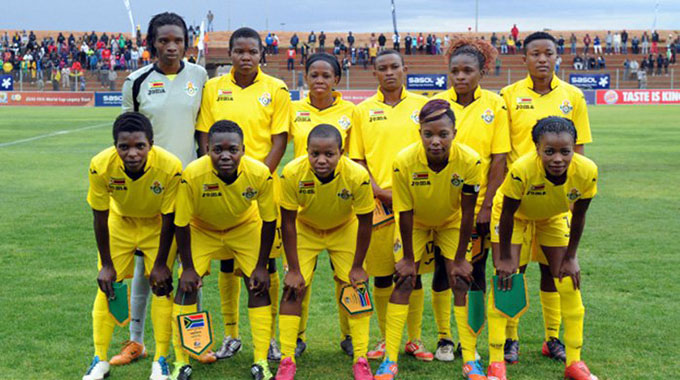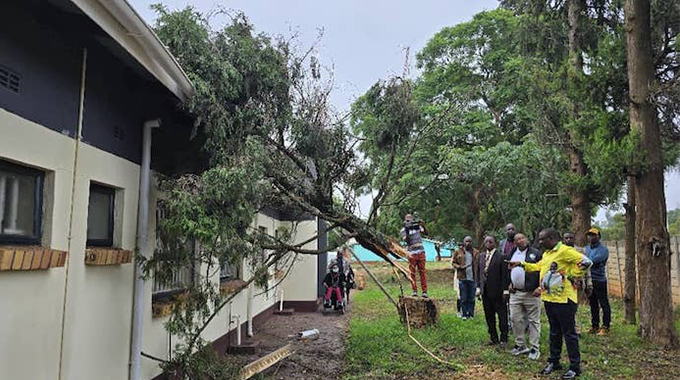Government partners EU to empower women farmers

Sukulwenkosi Dube-Matutu, [email protected]
GOVERNMENT and the European Union (EU) have embarked on a 400 million euro Greener and Climate Smart Agriculture project aimed at empowering women who are the main players in the country’s agricultural sector at household level.
In an interview on Wednesday during the handover of the upgraded Manama Animal Health Management Centre in Gwanda District, Matabeleland South, EU Ambassador Jobst von Kirchmann said the two-fold programme running until 2027 complements the National Development Strategy 1 (NSD1) and the Agriculture and Food Systems Transformation Strategy
He said the EU and other partners are coming in to support the value chains which can enhance productivity in the country.
Ambassador Kirchmann said the intervention seeks to help Zimbabwe’s transition towards a greener, more sustainable and climate-smart agriculture.

European Union
“In Zimbabwe, Team Europe has launched two initiatives one for gender and empowerment of women and the other for greener, climate-smart agriculture. We are planning to invest around 400 million Euros in these initiatives from 2021 to 2027,” he said.
Team Europe comprises of the EU, Sweden, France, Italy, the Netherlands and Switzerland.
“Our second flagship is on gender and women empowerment. Agriculture and women empowerment are closely linked because many women work in rural areas and are active in the agricultural sector,” said Ambassador Kirchmann.
He said the agricultural sector is the backbone of the country’s economy contributing 80 percent to the GDP.
“Empowering women contributes to the growth of the agricultural sector. We are saying the strengthening of the livestock value chain can help fight diseases, improve the condition of animals and hence grow the national herd and increase chances for export,” said Ambassador Kirchmann.
“The livestock value chain is crucial in enhancing productivity in the country. The financial assistance which we are giving can however not make a value chain survive in the long run. This intervention can help to combat diseases and enhance efficiency but what can drive the value chain is the involvement of private-public partnerships.”
The EU Ambassador said communal farmers have to be supported to establish farming enterprises.
Government and its development partners have upgraded 26 animal health management centres in eight provinces across the country under a US$4 million project aimed at enhancing community livelihoods through increased production.
A total of 73 000 livestock farmers are already benefiting from the programme which is also set to reduce livestock mortality and support the growth of the national herd inline with the Livestock Growth Plan.
The upgraded centres will ensure that livestock medicines and vaccines are readily available while playing a crucial role in disseminating necessary information to farmers, which will enable them to protect their animals.
The European Union availed the funding under the Zimbabwe Agricultural Growth Programme (ZAGP) through the Food and Agriculture Organisation (FAO) in partnership with the Department of Veterinary Services and the Department of Environmental Health Services.
The intervention buttresses the implementation of the Transforming Zimbabwe’s Animal Health and Food Safety Systems for Future (SAFE) project.
Ambassador Kirchmann said the SAFE project is all about enhancing animal health, which translates into improved productivity and safer food systems for consumers.

“We’re not just talking about farming here, but we are also talking about boosting competitiveness and securing market access. The support that we are offering as EU and other partners is inline with strategies and programmes that have already been set by the Government to boost production,” he said.
Livestock production is an integral part of the lives of the majority of Zimbabweans. The livestock sector is an important source of livelihoods and contributes significantly to the growth of the agriculture sector and the economy as well as food and nutrition security.
The Livestock Growth Plan is part of the Agriculture and Food Systems Transformation Strategy that is expected to turn agriculture into a US$8,2 billion industry by 2025 and contribute towards the achievement of Vision 2030.












Comments